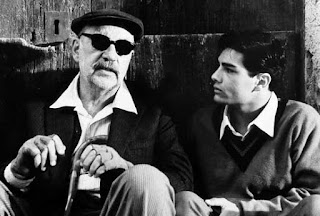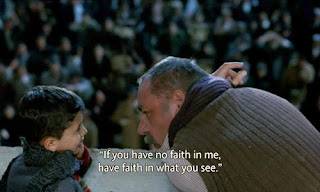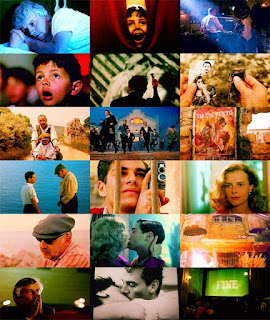Awakenings is a movie which was based by a true story; A book written by Oliver Sacks. It centers a Doctor (Doctor Sayer) who is placed at a chronic hospital at the Bronx whom tries to help overcome Encephalitis Lethargica in his patients (a form of disease that leaves patients catatonic).
In the beginning of the movie, when Dr. Sacks (played by Robbin Williams) joined the hospital, it can be seen that little or no care was given to the patients with Encephalitis, they were not treated as a human being instead a thing. This can be seen by the way the nurses treated the patients, hardly anytime was spent with them. The nurses and doctors of the hospital had formed a stereotype on these patients thus treating them as things without even so much as having a proper conversation with them. They assumed they all were brain dead and could not comprehend anything thus treating them merely as things with no emotions.
This stereotype and discrimination on them (the patients) broke when Dr. Sayer showed them nurses and doctors that they are responsive and their brains do work. When these patients were given the drug L Dopa, they regain normal human functioning. This would then lead them (patients) to tell the nurses what they dislike and what they prefer (such as the color of their hair, food preferences and activities they would prefer). The nurses were surprised by these requests and felt bad for not treating them better when they were catatonic. Main takeaway from here is patients should be treated as humans and not any other way. Their consciousness and brain very much still works.
 | |
| Maslow's Heirarchy of Needs |
Though, all this being said his feeling of prestige and esteem needs were not met. He managed to pass the stages of Maslow's hierarchy but stage four which was also essential in terms of his psychological well being were not met. He did not accomplished much on his own for he was not allowed to. Leonard Lowe was not given permission to do so much as go out for a walk alone thus affecting his mental state where he threw a fit (this may be also due to the side effect of the medication). Leonard Lowe was not given the freedom to choose thus altering his behavior which may have impacted the side effect even more.
One other aspect that the movie emphasizes is the way we take life for granted. After the patients came out of their catatonic phases temporarily, they were in awe of the littlest of things such as being able to move, being able to listen to music and dance and being able to go out or even look at the sun. They were so content about these things, things that we humans with normal ability take for granted. Hardly do we count our blessings for the life's we have compared to others who are more unfortunate then us.
The psychology of gratitude based on positive psychology is one way to overcome this issue. This view proposes that individuals want to live a meaningful life and as well a life with fulfillment. By doing so, it enhances our experiences in our daily activities such as love, work and play. It also increases our well being. When individuals are grateful for the things they have and the life they live, life suddenly becomes more satisfying. Leonard Lowe wanted people to see this as he was not given the opportunity others had such as going for a simple walk. He was rather upset that people were not appreciative enough of the simplest things such as these as he, even if he wanted to, could not because of his condition.
I end with this.















